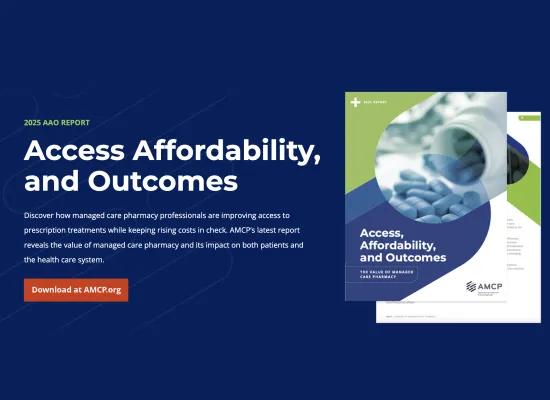
AMCP Partnership Forum Provides Actionable Steps to Address Issue of Racial Health Disparities
Alexandria, Va., March 30, 2021 — Last week, more than 40 experts representing payers, pharmacy benefit managers, integrated delivery systems, health economists and analysts, patient advocates, academicians, pharmaceutical manufacturers, and other key stakeholders in the managed care setting convened virtually for AMCP’s Partnership Forum, “Racial Health Disparities: A Closer Look at Benefit Design.” The purpose of the forum was to identify potential structural issues within the current formulary and benefit design processes that may lead to racial health disparities or inequality and identify viable solutions to reduce racial health disparities in the use of medications and related therapies.
Forum participants examined the challenges of racial health disparities, including institutional barriers to access, a lack of trust in the health care system within underserved communities, the inflexibility of benefits within an antiquated system, gaps in data acquisition and reporting, and lack of cultural competency in the health care system.
After deliberating the complexities of the issues and challenging each other on authentic, real-world actions, participants suggested the following strategies as the first steps to bring about equity within health care:
- Acknowledge that racism exists and impacts the formulary and benefit process and build proactive policies and educational programs within health care organizations to prevent these disparities from occurring.
- Integrate standardized cultural competency programs into the daily workflows of managed care pharmacy professionals that highlight current racial biases in the system, provide techniques to uncover new instances of health disparities, and offer clarity on steps to reduce the burden on impacted communities.
- Address gaps in data in the design of clinical trials, real world evidence, and clinical workflows. Participants called for standardization of data collection and analysis across the health care industry to develop quality measures related to health equity.
- Reevaluate utilization management tools and the impact it has on patients as they navigate the system, especially surrounding conditions such as diabetes, hypertension, and heart disease that disproportionately affect minority populations.
- Incorporate the minority patient voice into the entire health care process, including more representation in clinical trials and P&T processes. This integration will foster a level of trust in the complex health care process and an increase in medication utilization.
“Continuing to examine, identify, and eliminate barriers to access and issues of racial health disparity is a vital role that managed care pharmacy can play in health care,” said AMCP CEO Susan Cantrell, RPh, CAE. “The forum participants acknowledged that the proposed strategies are strong, strategic first steps, but that there is no quick fix to remedy the institutionalized issues creating racial health disparities. Managed care pharmacy can’t fix the systemic problems causing the disparities, but it can serve as a much-needed catalyst for change throughout our health care system. As part of its new strategic plan, AMCP has committed to become a needed voice and convener around the role that managed care pharmacy can play in identifying and reducing health disparities.”
All findings and recommendations from the AMCP Partnership Forum “Racial Health Disparities: A Closer Look at Benefit Design,” will be published in an upcoming issue of Journal of Managed Care + Specialty Pharmacy. In addition, AMCP will host a webinar later in 2021 reporting the findings and recommendations. The event was sponsored by Amgen, National Pharmaceutical Council, Pfizer, PhRMA, Sandoz Inc., and Takeda Pharmaceuticals U.S.A., Inc.
About AMCP
AMCP is the professional association leading the way to help patients get the medications they need at a cost they can afford. AMCP’s diverse membership of pharmacists, physicians, nurses, biopharmaceutical professionals, and other stakeholders leverage their specialized expertise in clinical evidence and economics to optimize medication benefit design and population health management and help patients access cost-effective and safe medications and other drug therapies. AMCP members improve the lives of nearly 300 million Americans served by private and public health plans, pharmacy benefit management firms, and emerging care models. Visit www.amcp.org.
Featured News & Resources
See Full CalendarAward Applications Open
AMCP eLearning Day: Nexus Encore
AMCP 2026 Registration Opens
Upcoming Events
AMCP offers a wide variety of educational opportunities, from events and webinars to online training.







